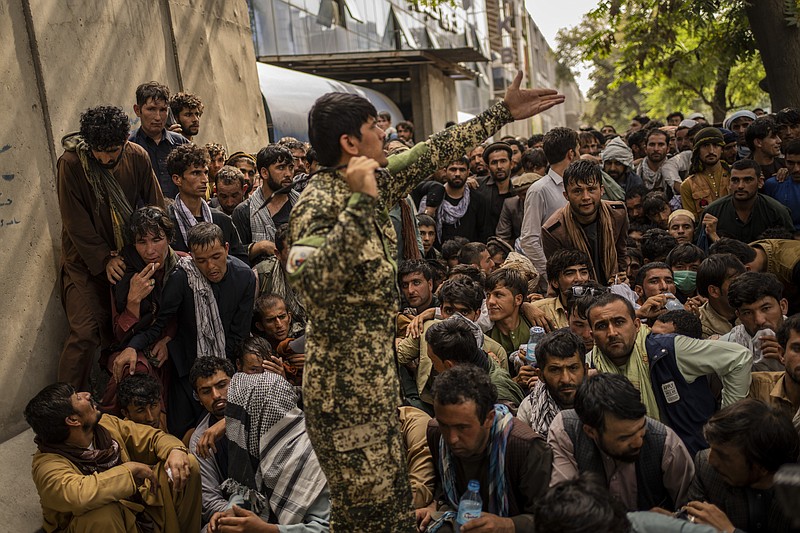KABUL, Afghanistan (AP) — When the Taliban swept into power, they found Afghanistan’s economy fast approaching the brink and were faced with harrowing predictions of growing poverty and hunger. So they ordered the financial managers of the collapsed former government back to work, with an urgent directive: Do your jobs, because we can’t.
In the 20 years since the Taliban last ruled, Afghanistan evolved from an economy dealing mostly in illicit enterprise to a sophisticated, multi-billion-dollar system fueled by donor aid and international trade. The Taliban, a movement borne out of the rural clergy, struggled to grasp the extent of the transformation.
Four employees from financial institutions told the Associated Press how the Taliban commanded bureaucrats from the previous government’s Finance Ministry, central bank and other state-owned banks to return to work. Their accounts were confirmed by three Taliban officials.
“They told us, ‘We are not experts, you know what is better for the country, how we can survive under these challenges,’” recalled one state bank official, who like others spoke on condition of anonymity because he was not authorized to speak on record.
They told him, “Do what you must,” but warned, “God is watching you, and you will be accountable for what you do on Judgment Day.’”
Quietly, these technocrats are advising the Taliban leadership in the running of the crippled financial sector. They tell them what to do and how to do it. But, as seasoned experts, they see no way out of Afghanistan’s economic quagmire: With billions in international funds frozen, the best they can muster in domestic revenues is $500 million-$700 million, not enough to pay public salaries or provide basic goods and services.
The Taliban are buttressing relations with local businessmen to keep them operating, while the leadership makes its case for international recognition in meetings with foreign officials.
The Taliban’s seizure of power in mid-August resulted in an abrupt halt to most donor funds. These disbursements accounted for 45 percent of GDP and financed 75 percent of state expenditures, including public sector salaries. In 2019, total government expenditures were nearly $11 billion.
With drought ongoing as well, the United Nations predicts 95 percent of the population will go hungry and as much as 97 percent of the country risks sinking below the poverty line.
The United States froze billions in dollar reserves in line with international sanctions against the Taliban, eroding the liquidity of the central bank and commercial banks and constraining their ability to make international transactions.
This has undermined international trade, a mainstay of the Afghan economy. Intermediary banks abroad are reluctant to engage in transactions given sanctions risks. Informal trade, however, continues. The International Monetary Fund predicts the economy will contract sharply.
In the Finance Ministry and central bank, near daily meetings revolve around procuring basic staples like flour to ward off hunger, centralizing customs collections and finding revenue sources amid critical shortages in household goods. In Afghanistan, all fuel oil, 80 percent of electricity and up to 40 percent of wheat is imported.
The technocrats’ frustrations are many.
Never mind dollars, there isn’t enough of the local currency, the afghani, in circulation, they said. They blame this on the previous government for not printing enough prior to Kabul’s fall in August.
Hallways once bustling with employees are quiet. Some ministry workers only show up once or twice a week; no one has been paid a salary. A department responsible for donor relations once had 250 members and dealt with up to 40 countries; now it has 50 employees at best, and one interlocutor: the United Nations.
There are no women.
Many are growing exasperated with the Taliban leadership.
“They don’t understand the magnitude,” one ministry official said. “We had an economy of $9 billion in circulation, now we have less than $1 billion.”
But he was quick to excuse them.
“Why would I expect them to understand international monetary policy? They are guerrilla fighters at heart.”

